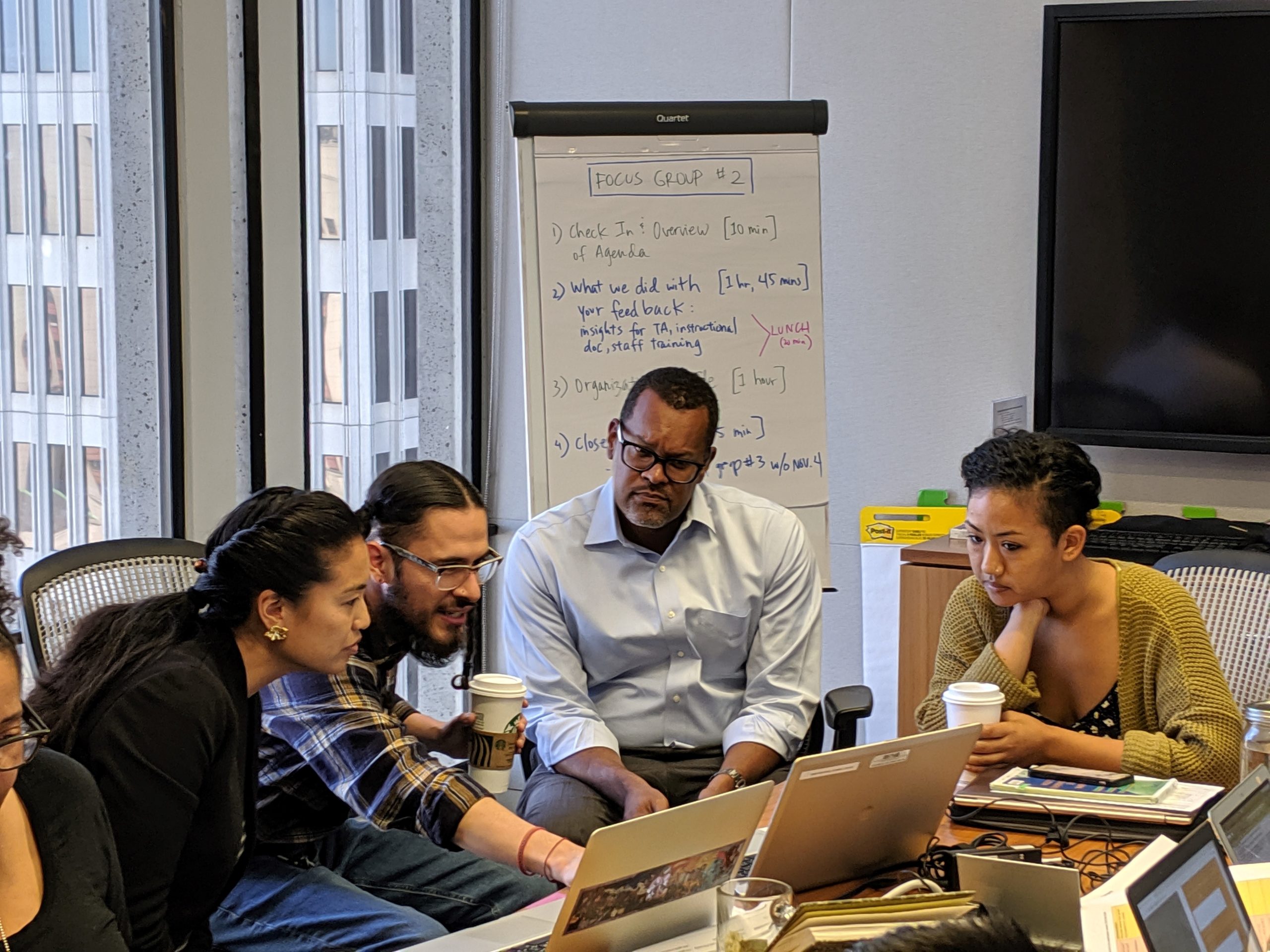By Humberto “Beto” Ortiz-Silva, Co-Interim Program Coordinator at 67 Sueños
Last summer, I got an email from Jidan Terry-Koon, a senior program officer at the San Francisco Foundation. She asked me if I wanted to be part of a focus group made up of people from nonprofit organizations that would provide feedback on the foundation’s Equity Grants Open Cycle application process. I was juiced!
I’ve spent the past six years as a community organizer and educator, working with youth and focusing on immigration and housing. For the past two years, I’ve been working at 67 Sueños, a program of the American Friends Service Committee (AFSC). 67 Sueños works with undocumented youth and youth from mixed-status families in the Bay Area to push for inclusive immigration policies through civic engagement, “art-ivism,” and healing from trauma. We do our work with an annual budget of $250,000. I came to 67 Sueños as a fellow, and after being promoted last year, I suddenly found myself leading our fundraising efforts.
This is the first time I’ve been in charge of writing grant applications and pulling together money for an organization. What I’ve learned so far is that the writing isn’t the hardest part. I know how to put ideas and words together. It’s the intricacies, the minutiae, and coordinating with development and finance departments in our parent organization – that’s what makes writing grant applications so tricky.
I’m still in the early stages of my career, and I’m still growing into my role as a fundraiser. For me, the hardest part about writing grant proposals is finding the time to do it! I have to balance it with the rest of my work – developing programs, designing curricula, securing locations for our after school programs, and more. If I spend too much time on grants , our programs will suffer. Grant applications take me a minimum of 10-15 hours to research and complete. So when funders require such a big chunk of my time, they may not be keeping in mind that many of us wear multiple hats and juggle multiple balls at the same time. I find that funders cater to organizations that have a full-time grants person.
With all of this in mind, I was really looking forward to taking part in SFF’s focus groups this past fall. The foundation invited staff from six different nonprofits that work on a range of equity-related issues, and whose organizations are both big and small, established and new. With Kimi Mojica from Justice Funders facilitating, we met with SFF staff for three different feedback sessions: the first was centered the Equity Grants Open Cycle application and general timeline, the second focused on required documents and the online application, and the last session zeroed in on the application guidelines.
The focus groups really humanized the foundation for me. Before this process, I wasn’t sure who made decisions at SFF, and I assumed that in general, funders weren’t grounded in community. Now I understand that SFF is made up of human beings that come from the community, care about the community, and understand our experience.
In December, SFF released its guidelines for its 2020 Equity Grants Open Cycle and presented a webinar that gave an overview of their strategies and application process for this year. It was jarring: for the first time, I saw specific feedback that I had given, from a change in wording to an adjustment to the sequence of questions, directly implemented in a funder’s application. I came away thinking that I am valued by this organization, and that funding information isn’t locked in a box buried in a faraway hill. This information is accessible now, and it’s presented in a way that I can understand. For once, I looked forward to applying to this grant because it won’t feel like a chore.
To close, I want to remind SFF and other funders that applicants aren’t starting out on an equal playing field. Don’t assume that we all have grantwriting staff and experience. Equity can’t just be an outcome of an awarded grant – it has to be incorporated into the application process itself. With its focus groups this past fall, SFF has helped even out the playing field.


